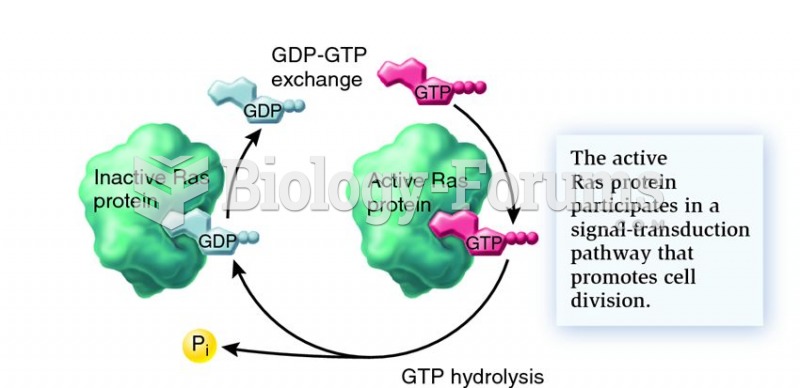|
|
|
Children with strabismus (crossed eyes) can be treated. They are not able to outgrow this condition on their own, but with help, it can be more easily corrected at a younger age. It is important for infants to have eye examinations as early as possible in their development and then another at age 2 years.
Glaucoma is a leading cause of blindness. As of yet, there is no cure. Everyone is at risk, and there may be no warning signs. It is six to eight times more common in African Americans than in whites. The best and most effective way to detect glaucoma is to receive a dilated eye examination.
Normal urine is sterile. It contains fluids, salts, and waste products. It is free of bacteria, viruses, and fungi.
Nearly 31 million adults in America have a total cholesterol level that is more than 240 mg per dL.
Most fungi that pathogenically affect humans live in soil. If a person is not healthy, has an open wound, or is immunocompromised, a fungal infection can be very aggressive.
 In addition to common schools, thousands of female seminaries were built between 1820 and 1850, many
In addition to common schools, thousands of female seminaries were built between 1820 and 1850, many
 Many Americans perceive bullfighting as a cruel activity that should be illegal everywhere. To most ...
Many Americans perceive bullfighting as a cruel activity that should be illegal everywhere. To most ...





